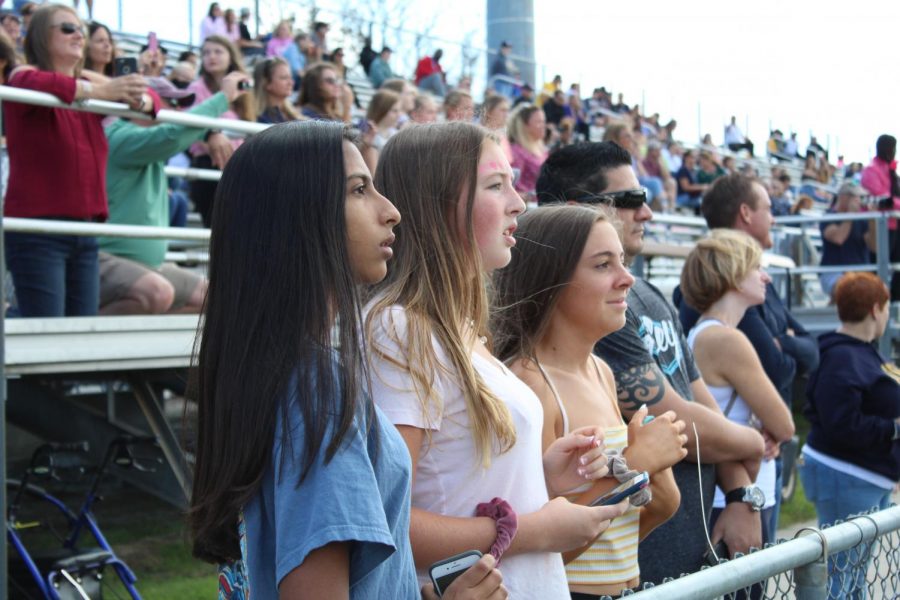Exploring the power of the crowd, how it affects athletic ability
Sophomores (from left to right) Meher Mohann, Kristin Glasier, and Kelly McCarty attentively watch the Homecoming game on Oct. 13.
October 24, 2018
From baseball to basketball to football, every sporting event usually has one major thing in common: the crowd.
Morale can affect a team’s overall performance. Reactions from the stands often serve as a source of optimism and boosts the team’s esteem.
“Having a huge group of people cheering after every play really gets us in a good mood and helps us not to think negatively about the past plays,” said junior volleyball player Haven McPeek. “Overall, I’d say having a large crowd benefits us and puts us in a happier mood.”
Apart from the motivation of victory, some athletes compete to make their spectators and school proud.
“When you’re playing at home, the people in the crowd are supporting you and pushing you harder,” said junior soccer player Troy Daigneau. “Also, you may know more people in the crowd personally, which could further motivate you to play harder and focus.”
A crowd’s presence impacts athletic performance.
According to research done by psychologist Norman Triplett at the University of Indiana, the presence of a crowd or simply another person facilitates the performance of an athlete. This reaction to an outside presence is called social facilitation. A crowd has a similar impact on athletes, known as “audience effect.”
“The presence of the crowd is definitely a factor in how I play. I always try to play 100%, but when there’s more people watching then I just try harder,” said junior soccer player Faith Grant.
However, not all reactions from the crowd are positive. Negative responses from the crowd may affect athletic performance and even distract them from the game at hand.
“When the crowd isn’t giving a response or giving a negative one, sometimes it can get in your head; you begin to think more than you do,” said senior wrestler Zaine Luppino.


